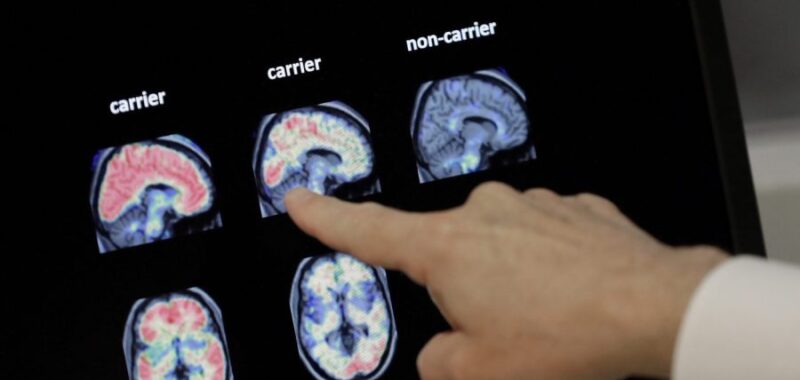
The Food and Drug Administration (FDA) on Friday announced it had cleared a new test to help diagnose adults with Alzheimer’s disease, the first diagnostic tool that uses a blood draw to check for the illness.
The test is called the “Lumipulse G pTau217/ß-Amyloid 1-42 Plasma Ratio” and is developed by the Japanese company Fujirebio Diagnostics, Inc. It measures specific biomarkers and proteins associated with Alzheimer’s disease and amyloid plaque. Deposits of amyloid plaque in the brain are a hallmark of Alzheimer’s.
Fujirebio submitted a regulatory filing with the FDA in September for its test. It is the first commercially available blood-based in-vitro diagnostic test for assessing Alzehimer’s in the U.S.
“Alzheimer’s disease impacts too many people, more than breast cancer and prostate cancer combined,” FDA commissioner Martin Makary said in a statement. “Knowing that 10% of people aged 65 and older have Alzheimer’s, and that by 2050 that number is expected to double, I am hopeful that new medical products such as this one will help patients.”
As the FDA noted in its announcement, this test, a simple blood draw, is less invasive than other commercially available options. According to the agency, roughly 92 percent of trial participants who got positive test results were found to have the presence of amyloid plaques through PET scans or cerebrospinal fluid analysis. Less than one in five participants received an indeterminate result from the test.
According to the Alzheimer’s Association, more than 7 million Americans live with the disease and this number is expected to rise to almost 13 million by 2050. Currently, one in nine Americans 65 and older has Alzheimer’s.
“These findings indicate that the new blood test can reliably predict the presence or absence of amyloid pathology associated with Alzheimer’s disease at the time of the test in patients who are cognitively impaired,” the FDA said. “The test is intended for patients presenting at a specialized care setting with signs and symptoms of cognitive decline. The results must be interpreted in conjunction with other patient clinical information.”
Howard Fillit, co-founder and chief science officer at the Alzheimer’s Drug Discovery Foundation, called the test a “major milestone for patients and clinicians.”
“The ability to diagnose Alzheimer’s earlier with a simple blood test, like we do for cholesterol, is a game changer, allowing more patients to receive treatment options that have the potential to significantly slow or even prevent the disease,” said Fillit.
“This is a clear example of the new era of Alzheimer’s research where innovation, science and technology come together to develop more accessible, affordable and scalable tools that will pave the way for additional regulatory approvals of diagnostic tools,” he added.

